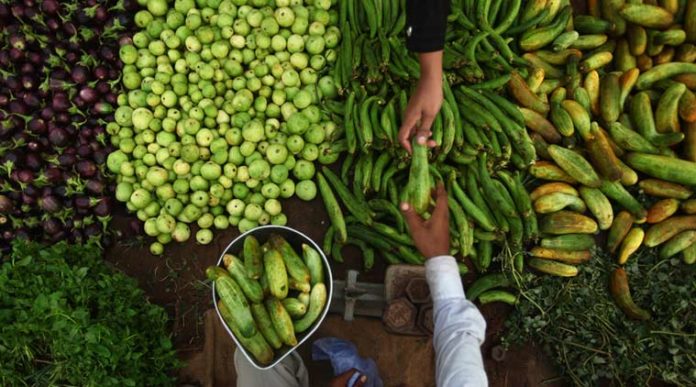The Maharashtra government has taken fruits and vegetables out of the purview of the Agriculture Produce Market Committee (APMC)-regulated mandis. Just a few days ago, when the state government was mulling this move and the unions threatened a strike, there were concerns that the government may give in to the pressure, reported #Swarajya.
But the government finally decided to ignore the threats. What the latest decision essentially means is that farmers can now sell their produce to the highest bidders. This is what Prime Minister Narendra Modi had in mind when he launched the e-NAM (electronic national agriculture market) scheme on Ambedkar Jayanti this year (14 April).
The plan initially aimed at integrating 21 mandis across eight states. However, fruits and vegetables were not included on the platform for their prices tend to fluctuate a lot compared to other commodities, the report says.
But the Devendra Fadnavis government has moved a step ahead. This will have many positive implications for farmers, who will now have a diversified market to cater to. To facilitate the new experiment, the state government has even exempted toll for trucks supplying vegetables to major cities and towns.
Meanwhile, the APMC traders have gone on a state-wide strike as promised. Ironically, this would give the farmers a chance to test whether the freedom to sell the produce anywhere will actually transform the marketplace for better.
From initial reports, the experiment seems to be working. Consider the impact of the new freedom farmers are enjoying as reported by News n Views today (13 July):
A farmer sold lady’s finger (bhindi) on Wednesday to consumers at Rs 40 to Rs 60 a kilo. According to him, the price he got at the APMC in the recent past was Rs 12 for 15/kg. That’s an increase in realisation of 300% to 400%. Furthermore, the benefit to the end consumers is apparent as the prices of lady’s finger in local markets through the APMC chain of traders is Rs 120/kg. The end consumer can save 50% on the price of vegetables and fruits.
The old media is reporting that APMC shutting its shop as a form of protest to these reforms will have an adverse effect on the inflation and can push it further up, but if the aforementioned report is any indication, the food inflation will actually come down. On top of that, the farmer will get three to four times the price they used to get in APMC-regulated mandis!
This is a bold step in the right direction to double (or even triple or quadruple) the farmers’ income. Let’s hope that other state governments would follow the example set by Maharashtra. Atleast, other BJP-led state governments should take note, added the report.
Sourced from Agencies, Featured Image Courtesy: gadesi.com

























